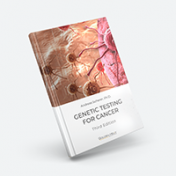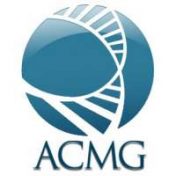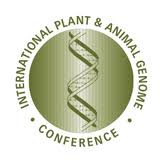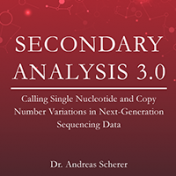Gene Fusion Background Gene fusions are hybrid genes that result from translocations, interstitial deletions, or chromosomal inversions that can lead to constitutive gene activation and result in increased or abnormal protein production. Increased or abnormal protein production subsequently can play an important role in tumorigenesis and thus identifying and evaluating this type of biomarker is important in the cancer workspace…. Read more »
VSClinical users can interpret and report genomic mutations in cancer following the AMP guidelines which we’re demonstrating in this “Following the AMP Guidelines with VSClinical” blog series. Part I introduced the hands-on analysis steps involved in creating a high-quality clinical report for targeted Next-Generation Sequencing (NGS) assays. We reviewed sample and variant quality, including the depth of coverage over the target regions by the sequencing performed for each sample. Now, we are ready to… Read more »
We are always excited to see how our software is used to support research and enable precision medicine. We believe that our customer’s success is ultimately our success! This summer was filled with many wonderful publications from across the globe and we are proud to have been a part of them. Here are just a few from each month: June… Read more »
In the world of genomics shaping precision medicine in oncology, the limiting factor is the time-to-sign-out of a fully interpreted molecular profile report. There are many components of the entire testing process that add to the turn-around time of each test. Many of these steps, such as sample prep, sequencing, and automated secondary analysis, are bounded and consistent in their time requirements. The hands-on… Read more »
With the increasing knowledge of mutations involved in cancer, it is imperative to have a tertiary analysis pipeline that provides users with the most up to date information on somatic mutations. VSClinical’s Cancer Add-On does just that and more; with this feature, users can investigate and report on SNVs, indels, CNVs, gene fusions, and considerations for wild type genes in… Read more »
Clinical Variant Analysis for Cancer – Applying AMP Guidelines to Analyze Somatic Variants Detecting cancer at an early stage can make it much more treatable. Developing tests and making them clinically actionable is crucial to beat this disease. This eBook covers the state-of-the-art gene panel tests for cancer. Of course, there is more that can be done. The field is… Read more »
Clinical Variant Analysis for Cancer – Applying AMP Guidelines to Analyze Somatic Variants As described in my eBook “Genetic Testing for Cancer,” any bioinformatic pipeline for cancer ultimately calls variants based on the aligned reads that the sequencer generated. Variant calling is the process of reviewing a sequence alignment, typically in the form of a BAM file, to identify loci… Read more »
Clinical Variant Analysis for Cancer – Applying AMP Guidelines to Analyze Somatic Variants Analogous to the ACMG guidelines for germline mutations, the Association for Molecular Pathologists (AMP) has issued guidelines to assess and report on somatic variants. The key paper in this area was published by Li et. al (2017) with the title “Standards and Guidelines for the Interpretation and… Read more »
Applying AMP Guidelines to Analyze Somatic Variants Today, I am thrilled to share with you the launch of a brand new eBook titled “Clinical Variant Analysis for Cancer – Applying AMP Guidelines to Analyze Somatic Variants”. We would happy to send you a complimentary copy which can be requested on our website here. The clinical utilization of Next-Gen Sequencing data… Read more »
Yesterday, I released a new version of my eBook, “Genetic Testing for Cancer – Third Edition”. We would be happy to send you one! To download a complimentary copy, please submit a request on our site here. In 1914, the German cytologist Theodor Boveri coined the phrase “Cancer is a disease of the genome.” At this time, his ideas were… Read more »
We are looking forward to a great conference at AMP Global 2019: Global Congress on Molecular Pathology being held in Hong Kong! If you are attending the conference, we hope you will stop by our booth and say hello to the team! We would love the opportunity to connect with everyone within our community in person. This conference is especially… Read more »
In the previous two articles, we explored the different steps of a clinical workflow. The first post covered the automated analysis that creates a VarSeq project. While the second post covered the interpretation steps and generation of a clinical report. These posts illustrated the ease with which these complex tasks can be carried out. Today we’ll dig a little bit… Read more »
In the previous blog post, we covered the automated steps to create a VarSeq project. Today we will examine the active analysis steps. These are the steps that require human interpretation to analyze the clinically relevant variants. A lab tech can take the first pass at the output in the generated VarSeq project. They can perform the quality control and… Read more »
Automating a clinical workflow creates a stable and repeatable clinical analysis. Automation reduces the potential to introduce human error, helps in regulatory compliance, and improves the precision of the clinical results. It is important to know that if you run a sample through your clinical pipeline, you are going to get the same results today as you will in 6… Read more »
Our team is looking forward to an eventful week at ACMG 2019 in Seattle, Washington! If you are attending the conference, we hope you’ll stop by our booth and say hello to the team: Andreas Scherer, Ph.D., Gabe Rudy, and myself, Shanna Finley! We would love the opportunity to connect with everyone in person! Our schedule is packed with a… Read more »
We would like to thank everyone who entered our 2019 Abstract Competition. This event is an excellent opportunity for our team to hear the unique ways Golden Helix software is being applied around the world. We had a number of remarkable entries this year which made our selection process a daunting one, indeed. It is my pleasure to announce this… Read more »
Our team is more than ready to escape the cold at Golden Helix HQ for an eventful week at PAG XXVII in San Diego, CA! If you are attending the conference, we hope you will stop by our booth and say hello to the team: Dr. Andreas Scherer, Darby Kammeraad, and myself. We would love the opportunity to connect with… Read more »
We have released a new version of my eBook, “Secondary Analysis 3.0”. To download a complimentary copy, I encourage you to do so here. Next-Generation Sequencing (NGS) promises to be the ultimate paradigm when it comes to genetic research and clinical testing since it contains the complete genetic information. When it comes to the current reality in testing labs, there… Read more »
Happy New Year. I trust you had a relaxing time over the holidays with family and friends as well as a great start into 2019. Golden Helix certainly had a landmark year. There were many highlights that actually shaped the direction for us in the years to come. Please let me mention a few: We launched VSClinical in May 2018:… Read more »
The SVS 8.8.3 release was created to incorporate some of the CNV, genome assembly control, and splice site capabilities that are present in VarSeq, as well as clean up and streamline the GWAS workflows (like when using Mixed Linear Model algorithms) for a better user experience. New Product Add-Ons for SVS GoldenHelix SVS now includes in-silico splice site, functional prediction… Read more »












